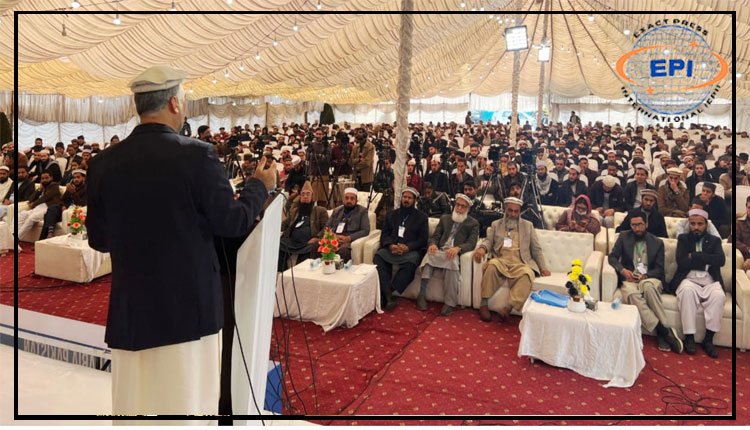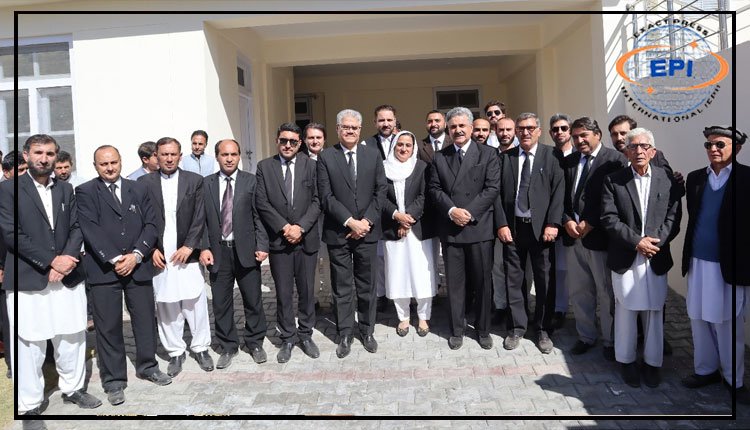Commission directs FBR to disclose information about actions against illicit cigarette trade
ISLAMABAD, May 20 (EPI): In a key development to ensure transparency and accountability in matters relating to public health and revenue protection, the Pakistan Information Commission has directed the Federal Board of Revenue (FBR) to disclose detailed information regarding its enforcement actions against illicit cigarette trade.
The directive was issued in response to an appeal filed by a citizen under the Right of Access to Information Act, 2017, following FBR’s failure to provide the requested information.
During the hearing, senior officials from FBR — including Syed Shabih Haider (Deputy Director), Zafar Iqbal (Second Secretary), Tariq Javed (Additional Director, I&I), and Obaid Ullah (Secretary, Customs) — appeared on behalf of the department.
The appellant had initially submitted an information request on September 6, 2024, addressed to the Secretary (Tax Education), PR Wing, FBR Islamabad. The request sought information on several key points: the number of actions taken by the Inland Revenue Enforcement Network (IREN) against cigarette-related offenses since September 2019; the number of fake cigarette manufacturing companies banned since that date; the number of cases filed against cigarette manufacturers and smugglers along with copies of First Information Reports (FIRs) registered in these cases; and the quantity of confiscated cigarettes since September 2019, including certified copies of rules, regulations, policies, and SROs that provide guidelines for the destruction or auctioning of such confiscated items.
FBR, upon receiving notice of the appeal, submitted a written response dated April 9, 2025, claiming that the information requested did not fall within the scope of Section 6 of the Right of Access to Information Act, 2017. Additionally, the department sought exemption from disclosure under Section 16(1)(b)(ii) of the Act. The reply was shared with the appellant, who acknowledged receipt but strongly contested FBR’s stance, arguing that the information sought was a matter of public record and not exempt under any provision of the law.
After reviewing the information request, the written response from FBR, and the rejoinder submitted by the appellant, the Commission conducted a thorough hearing. It was noted that the requested information, including actions taken, bans imposed, FIRs filed, and quantities confiscated, clearly pertains to records maintained by the department in the normal discharge of its official duties.
The Commission found that none of the requested information qualifies for exemption under the Right of Access to Information Act, 2017. It further examined the specific exemption claimed by FBR under Section 16(1)(b)(ii), which pertains to information that could harm the detection, prevention, or investigation of an inquiry. However, the Commission noted that the FBR representatives were unable to confirm whether any of the FIRs filed since 2019 had been finalized or remained under investigation. Given the lapse of time and the nature of the request — which relates to generic data and not sensitive, ongoing investigations — the Commission determined that the exemption was not applicable.
The Commission emphasized that the information being sought is of significant public interest, and aligns with principles of economic growth, transparency, and good governance, as outlined in the preamble of the Act. It also cited Section 5, particularly Section 5(1)(i), which underlines the obligation of public bodies to maintain and disclose public records.
In light of the above findings, the Commission rejected FBR’s plea for exemption and allowed the appeal. Secretary (Compliance), who currently holds the role of Public Information Officer, has been directed to provide the requested information within ten days of receiving the order.
The case has been adjourned to June 24, 2025, for the submission of the compliance report.











